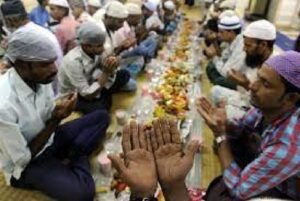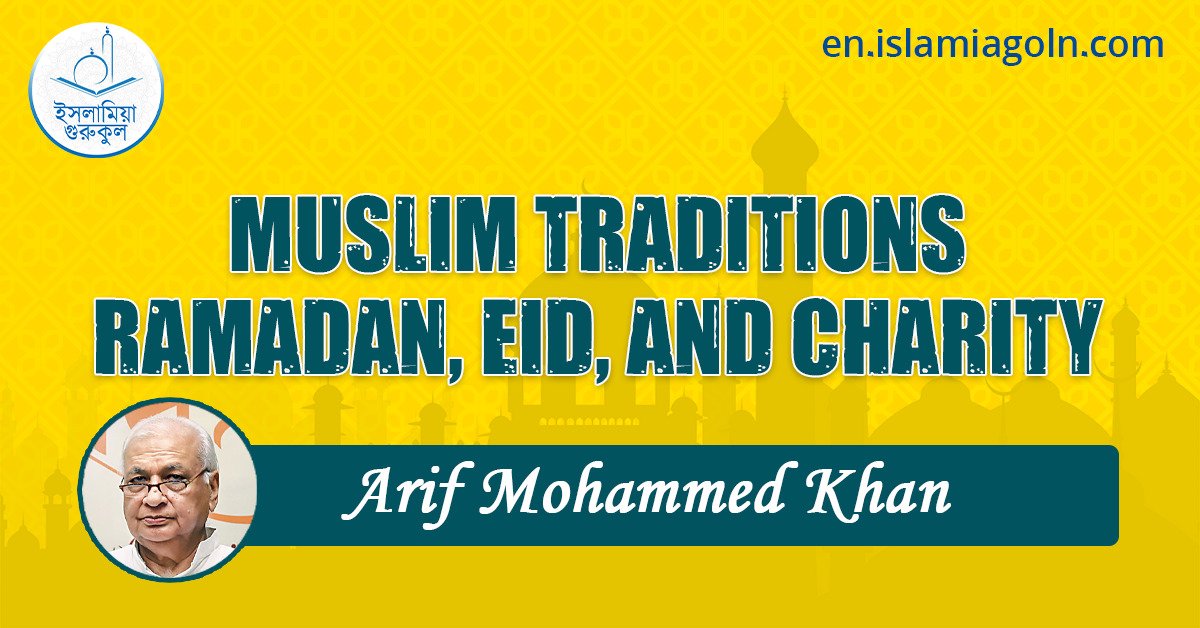Today is our Focus: MUSLIM TRADITIONS RAMADAN, EID, AND CHARITY

MUSLIM TRADITIONS RAMADAN, EID, AND CHARITY
In Muslim tradition, Ramadan is associated with month-long fasting and the Eid festival is celebrated with great zeal and fervour. But underlying spirit that permeates the fasting and festivities is Taqwa (God-consciousness), inspiring kindness and compassion for fellow-human beings particularly those who lack adequate material resources to live a life of dignity. The faithful are repeatedly exhorted to be conscious of the need to share some of the bounties they possess with those who lack them.
The Quranic perspective of an ideal society is where each and every individual is assured fulfilment of three basic requirements that is bread, clothing and a modest shelter. It says: ‘There is therein (enough provision) for you neither to go hungry nor to go naked, nor to suffer from thirst or from the suns’ heat’ (20.118-119).
According to a tradition narrated in Kanz-al-‘ummal the Prophet is reported to have said that ‘The son of Adam has basic rights for three things: a house to live in, a piece of cloth to cover his body, a loaf of bread and water’.

Bukhari has reported another tradition that says that when somebody asked what deed are considered best in Islam the Prophet replied: To feed and greet those whom you know and those whom you do not know
All biographical accounts of the Prophet report that he used to be extra kind and generous during the month of Ramadan. For this reason. besides voluntary charity and acting with kindness an obligatory charity at the conclusion of the month has been instituted to recognise the right of the needy so that they may also join in the festivities in a befitting manner. This charity is known as Fitra and the festival itself has been named as Eidul Fitr emphasising the importance of charity associated with festivity.
The need to spend in charity and regard for those who are less endowed is so emphatically stressed that while providing for expiation for the defaulters, Quran stipulates that those who find it difficult to observe fast can effect redemption by feeding a poor person (2 184) This shows that even a non-fasting individual is obligated to acknowledge the needs of the poor and show kindness to fellow-human beings as feeding the poor is equated with offering worship to God.

There is another saying of the Prophet that ‘in ones’ wealth there is a due besides zakat Hadrat Ali commenting on this statement said:
God has ordained that the nch must pay out of their wealth to the extent required to meet the needs of the poor. If the poor do not find food and clothing, or any other need remains unfulfilled, it would be because the rich are not doing their duty, and they shall be held to account for this lapse before God.

Ramadan also has another distinction, which is the revelation of the Quran started this month. This explains the special congregational recitals of Quran during Ramadan and efforts to understand and contemplate its provisions. And when you reflect about the provisions of Quran, you cannot ignore the fact that it has more than 500 verses prescribing charity and defining ‘righteous’ as those who recognise in their wealth the right of the needy and the deprived (51 19)
The Quranic idea of charity finds best expression in the immortal lines of Kahlil Gibran, great Lebanese-American poet who himself was an ardent admirer of the book.
You give so little
When you give of your possessions
It’s when you give of yourself
That you truly give
See more:

1 thought on “MUSLIM TRADITIONS RAMADAN, EID, AND CHARITY”